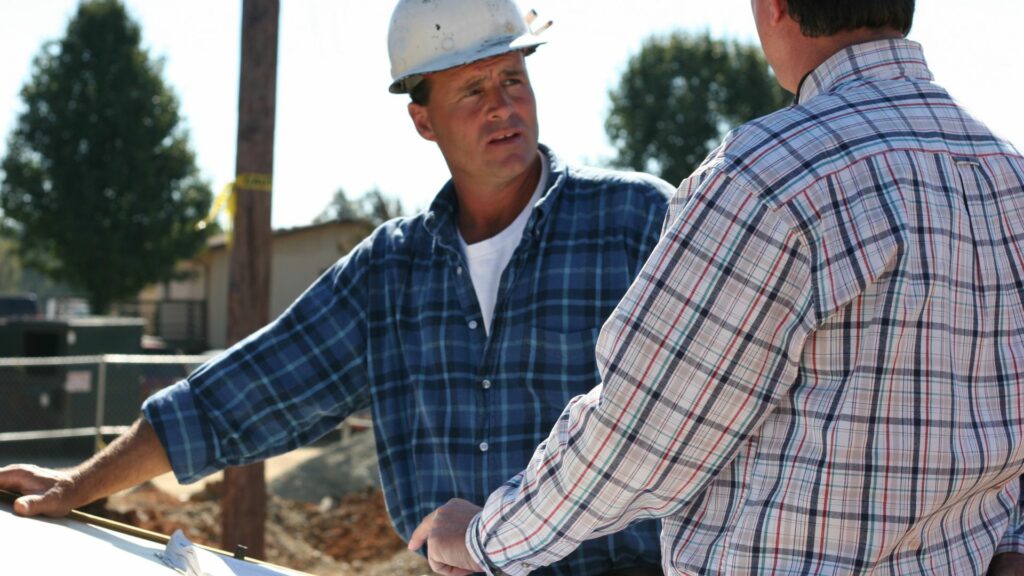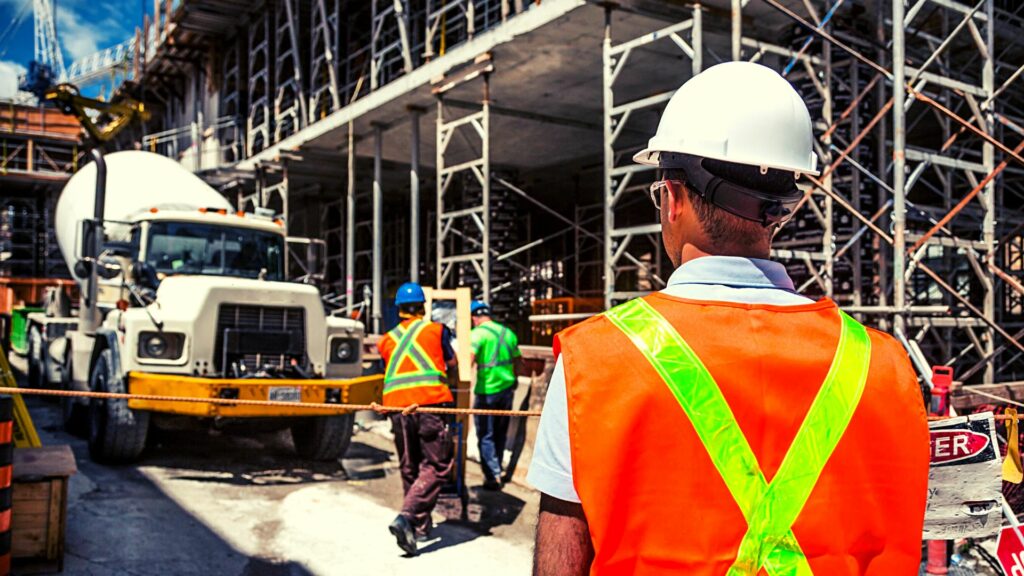As cliché as it is, large construction projects almost always go beyond time and budget. Research suggests that large projects are delivered 20% late and 80% above budget. Construction project management ensures a successful project, from planning and design to budget allocation and management of resources.
Mistakes could be costly in large construction projects, as construction projects come with serious challenges, such as financial constraints and strict time parameters. Every detail and contingency matters, and avoiding expensive construction mistakes is the priority.
Table of Contents
What is Construction project management?
Construction project management is a professional service that involves the direction and organization of the entire project life cycle from ideation to completion. Construction project management is a holistic practice that deals with the cost, schedule, safety, quality, function, and scope of a construction project.
It is a complex discipline that goes beyond cost control and procurement to ensure the process is efficient from start to finish. The project managers work with the entire team involved in the construction to achieve this. Despite all the collaboration in a project, the Construction Manager’s responsibility is to ensure a successful project for the owner.
Construction project management must be conducted by a professional Project Manager of dedicated Construction Manager. Using professionals helps cut costs, minimize risks, and ensure higher work quality.
Professional construction managers have the knowledge and expertise required to manage projects successfully based on industry-standard practices. Construction managers focus on all six aspects of construction project management: cost, quality, schedule, function, scope, and safety.
Beside the Construction Manager (CM), a project will typically involve three other parties. These are the owner, architect or engineer, and the contractor.
The owner commissions and finances the project, directly or indirectly. The architect or engineer designs the project, and the contractor manages the subcontractors and oversees the site operations.
The construction managers work with project stakeholders to determine the construction process flow with a clear schedule and budget. Construction managers are also responsible for project safety and security, keeping in mind their commitment to helping the project owner manage risk. They must be well versed in project management information systems, construction methods, and planning techniques.
Who is involved in Construction project management?
Since construction project management is a holistic practice, it involves several team members. Some of the members involved are financial planners, engineers, architects, contractors, sub-contractors, and on-the-ground crew members.
Some of the roles of the key players are discussed below.
- The owner: The project owner may be an individual or business entity that commissions the project. An owner may be in any industry, such as education, real estate, healthcare, and development.
Owners typically lack in-house construction oversight teams and employ certified construction managers to handle the construction project management activities.
- The Construction Manager: The construction manager is the person or team of persons contracted by the owner to oversee the delivery of the entire project from ideation to completion. The construction manager is involved in the project from the planning stage to the construction and the handover.
- Architect and Engineer: Every large construction project requires a licensed Architect or Engineer. They could be a person, or a firm contracted to design the project and coordinate the engineering disciplines.
- The General Contractor: This team manages the subcontractors and oversees the daily site operations.
The construction manager is the most critical member of the construction management process. If there is no dedicated construction manager on board, this role will be filled by a contractor or the owner.

Stages of Construction and Construction project management
Construction project management is done in five phases corresponding to the five stages of construction. These phases are planning, design, pre-construction, procurement, and construction. Understanding the five steps is key to delivering a successful project.
Planning and Development
The planning and development stage is critical for construction project management because it is the first step in mitigating risks. The first thing is to perform feasibility studies to determine the project’s viability. No owner wants to start a project to halt it and incur losses.
The planning stage calls for feasibility studies, pro-con lists, capital budgeting, and stakeholder input. Insights from in-depth data analysis are collated with the stakeholders’ input to inform decisions. This stage also helps the team identify potential risks and develop ways to mitigate them.
This stage pushes the team to ask themselves questions that guide decision-making. These questions may include:
- What is the need for construction?
- What are the project’s goals, and how will success be measured?
- What is the potential impact of these goals on the design?
- Will the project yield a positive ROI?
- What are the potential risks, and are these risks manageable?
- Does the project fit into the company’s portfolio?
- What are the scopes for budget and timeline?
The construction management works with the architects, engineers, and other hired consultants to agree on the feasibility of those goals and do their best to plan for potential construction setbacks.
Construction management determines the most suitable delivery method based on the project’s scope. Traditional delivery methods such as design-build may be familiar, but there needs to be an open mind to circumvent any issues that may increase risk, stress, and costs. It is crucial to plan correctly to mitigate risks from the beginning and reduce the risk of additional expenses.
The project begins to shape here as the team develops the basic concept into detailed blueprints of the final design. It is an iterative process as the design will evolve from sketches to finished drawings of the proposed building.
The project manager must ensure that each iteration meets the project’s requirements, including costs and timelines. Once the final design is approved, the team moves on to the pre-construction stage.
Pre-construction
The pre-construction stage is where approved design plans are submitted for building permits. General contractors may be invited to submit their tender bids at this stage.
The construction manager is involved in many activities such as mapping out work and operations, setting up budgets, defining and allocating resources, hiring construction teams, allocating tasks, establishing timelines, risk assessment, and management and contingency planning.
Procurement
As the name suggests, procurement involves sourcing, purchasing, and transporting the materials needed to complete the project. The construction manager works with the procurement and supply chain team to minimize unexpected costs. Still, risks are inevitable because of market volatility, and the construction manager is responsible for mitigating these.
The decision of when to procure materials and services is an integral one and must be backed by research to avoid going over budget. The construction management may choose to procure resources before the project or on a needs basis.
Construction phase
The general contractor breaks ground, and the construction begins. Hopefully, the hard work done in the planning and design stage will pay off. However, the construction manager must regularly monitor and evaluate progress to ensure the project stays on track.
Activities during this phase include quality control inspections, site investigations, monitoring general contractor safety programs, and monitoring insurance. It also includes answering RFIs, reviewing and approving technical submittals, coordinating permits, managing the budget, scheduling timely payment for work completed, and ensuring the project is delivered as designed.
Once complete, the construction manager and the general contractor officially hand over the building to the owner.
Common challenges
Even the best-planned project is bound to run into some problems. Some of the common challenges construction project managers face are lack of communication, delayed cash flow, poor risk assessment, and unrealistic expectations.

Lack of Communication
Lack of communication means that the team operates without clear direction and will derail the project. Communication includes managing and handling documents from clients, contractors, or suppliers. The construction managers should proactively seek information from all the stakeholders and share the same so that goals are aligned.
Delayed Cash flow
Construction projects cannot go without cash flow. The construction manager must ensure the budget reflects realistic cost estimates and contingencies to avoid delays. The construction manager must review the budget, manage costs, and request funds in good time.
Poor risk assessment
Construction is a high-risk industry. Poor risk assessment could result in bodily injuries and even death on site. Construction project managers must be proactive and identify safety risks as quickly as they eliminate them. Workers should be involved in the safety process to be more inclined to report potential hazards and accidents. Finally, risk assessment efforts must be tailored to meet the needs of a specific project.
Unrealistic expectations
Unrealistic timelines and requests kill morale and reduce productivity. The construction industry is highly competitive, and stakeholders may set realistic objectives. Construction managers must mitigate this by advocating for the team and communicating the team’s feedback to keep the project on track.
Summary
The construction industry is notorious for going over budget and late delivery of projects. Therefore, it is essential to contract a professional construction project manager to work with all the stakeholders from ideation to completion.
Construction project management is essential in controlling every project phase and organizing and automating routines for improved efficiency. It also gives all project stakeholders real-time data on project progress, thus avoiding the time and budget overruns.

